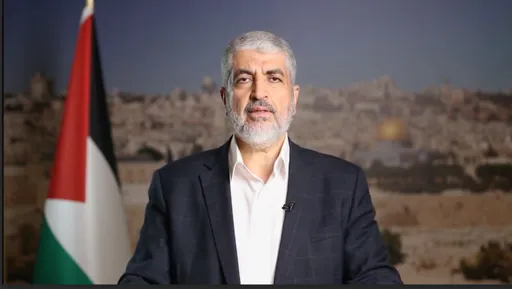Seeing the US’ withdrawal as an opportunity, the Taliban is rapidly taking over several districts and provincial capitals in Afghanistan, including border crossings and shutting down schools, hospitals, and courts of the government, and enforcing its brutal rule in the areas that it has taken over.
According to the midyear report of the United Nations Assistance Mission in Afghanistan, approximately 5,200 Afghans either lost their lives or were injured during the war — a 47 percent increase compared to the same period in 2020. 1,659 of those killed were civilians. The report shows that civilian deaths and injuries had increased since May when US and NATO forces officially began withdrawing their troops.
During the latest UN Security Council meeting, UN Special Representative to Afghanistan Deborah Lyons stated that Afghanistan is now at a dangerous turning point and more than 1,000 civilians have lost their lives in the cities of Herat, Kandahar, and Lashkar Gah since the Taliban attacks started — that’s more than 1,000 civilian casualties in just a month. But not even one member of the UN Security Council seems to hear that Lyons is clearly saying that not stopping what is happening in Afghanistan will result in a catastrophe of the century.
Ghulam M. Isaczai, Afghanistan's Representative to the UN noted that more than 10,000 foreign fighters from 20 groups, including Al Qaeda and ISIS (Daesh) are currently in the country. This means that, once the NATO forces leave the country entirely, Afghanistan may become a hotbed of terrorism.
In addition, a new wave of migration originating from Afghanistan has started to impact neighbouring countries, primarily Pakistan, Iran and Turkey. The danger that radical terrorist elements will find refuge in Afghanistan is growing again with the lack of security that will emerge from the increasing instability.
But NATO, the UN and the European Union are ready to turn their heads from this chaos.
Ross Wilson, Charge d’Affaires at the US Embassy Kabul, who has also served in Turkey, has stressed that Afghanistan is headed towards a state of chaos. He also stated that the "Taliban's attacks contradict the claim to support a negotiated solution in the Doha peace talks and, with a careless disregard for the welfare and rights of the civilians, the country's humanitarian crisis will be worsened." Soon after, the State Department urged all Americans to leave Afghanistan immediately.
Pentagon Press Spokesperson John Kirby stated in the Pentagon’s most recent press conference that the US would support Afghan forces by launching airstrikes against the advances of the Taliban. However, the success rate of the airstrikes is a question to consider.
Interestingly, the US Special Representative to Afghanistan, Zalmay Khalilzad, who has visited Turkey frequently, said this in his speech at the Aspen Forum: "We believe that there is no military solution. This requires a political solution."
In this case, another question arises: Why can't the Doha talks be resumed, and what is the reason behind the insistence on military air operations?
The Turkey factor
Security experts in Washington are closely monitoring the developments between Turkey and the US regarding protecting the airport. The US notes that the negotiations are ongoing, but the countries have yet to reach a final result. The parties will likely reach a conclusion soon, as US troops are scheduled to leave on August 31.
In press conferences, the Pentagon has underlined that the US trusts Turkey, which has about 600 soldiers in the country, under the scope of the NATO mission.
Despite the dangerous environment, Turkey is willing to take the risk of securing the airport because Afghanistan's connection to the world is via air, primarily via Hamid Karzai International Airport.
In Washington, few individuals and institutions are concerned about the task Turkey wants to carry out. One of them is Richard Outzen, a former US military attache in Kabul, who emphasises that Turkey's role is of grave importance for the US because of the emerging internal balance of power and, subsequently, the regional geopolitical maneuver.
But Turkey's future role in Afghanistan is neither on the agenda nor is it subject to any appreciation, especially in the Congress, meaning that Turkey is not even a subject of discussion within the American public and media.
Turkey should not be sentimental and not take charge of the airport in this chaotic environment. All indicators tell us that Turkey should not be involved in this alone and is even better off not getting caught up in this chaos, which will get worse.
Ankara's intention to make the airport issue a bargaining counter in the negotiations gets little attention from Washington. Turkey is a friendly country that has successfully contributed to peace and has already won the hearts of the Afghan people. Therefore, it would undoubtedly be more valuable for Turkey's strategy for Kabul and for Afghanistan in the broader sense to take political steps rather than plan military interventions.























